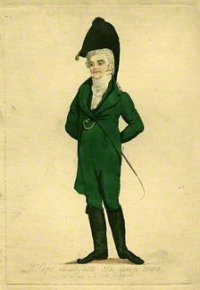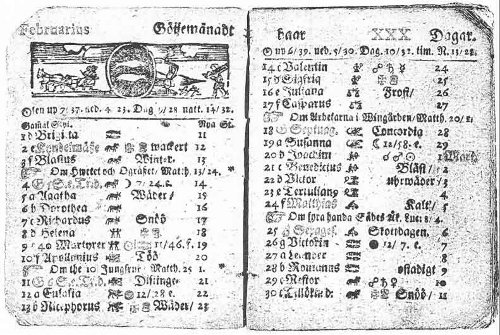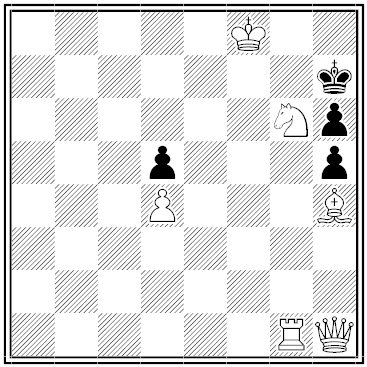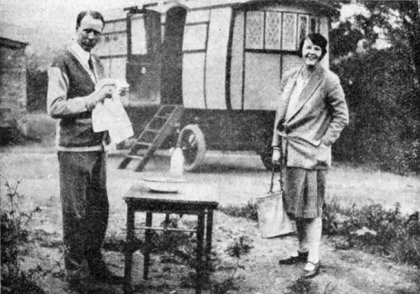
A bizarre entry in the Annual Register of 1806:
“Oct. 25. — Among the personages who lately attracted public notice at Brighton, was an original, or would be original, generally known by the appellation of the green man. He dressed in green pantaloons, green waistcoat, green frock, green cravat; and, though his ears, whiskers, eye-brows, and chin, were powdered, his countenance, no doubt from the reflection of his clothes, was also green. He ate nothing but greens, fruits, and vegetables; had his rooms painted green, and furnished with green sofa, green chairs, green tables, green bed, and green curtains. His gig, his livery, his portmanteau, his gloves, and his whip, were all green. With a green silk handkerchief in his hand, and a large watch chain with green seals, fastened to the green buttons of his green waistcoat, he paraded every day on the Steine.
“This morning at 6 o’clock, this gentleman leaped from the window of his lodging on the south parade, into the street, ran from thence to the verge of the cliff nearly opposite and threw himself over the precipice to the beach below. Several persons immediately ran to his assistance, and carried him, bleeding at the mouth and ears, back to his lodgings. The height of the cliff, from whence he precipitated himself, is about 20 feet perpendicular. From the general demeanour of the above gentleman, it is supposed he is deranged. His name, we understand, is Henry Cope, and that he is related to some highly distinguished families.”






